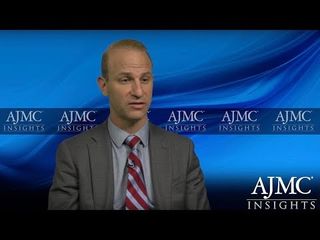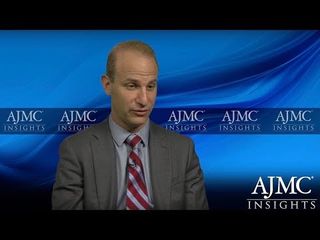
Clinical
Latest News
Latest Videos

CME Content
More News

A novel, simplified cost-value analysis tool was created to better differentiate the value of anticancer agents and further characterize the expected survival benefit of all patients.

The trial, evaluating the programmed death ligand-1 inhibitor durvalumab, alone or in combination with tremelimumab, versus platinum-based chemotherapy, has refined its endpoints to include overall survival (OS) along with progression-free survival.

Among the 9 new orphan drugs approved by the FDA in 2016 were 3 treatments for rare diseases that, so far, had no approved treatments: Duchenne muscular dystrophy, spinal muscular atrophy, and severe hepatic veno-occlusive disease.

According to a new study, in addition to tumor type, stage, and the presence of comorbidities, patients receiving cisplatin-based treatments might be at an increased risk of venous thromboembolism.

At the 58th American Society of Hematology Annual Meeting & Exposition, Jan Joseph Melenhorst, PhD, presented results of a study evaluating biomarkers of response to anti-CD19 CAR T-cell treatment in patients diagnosed with chronic lymphocytic leukemia (CLL).

Phase 3 results from the LyMa trial have shown that rituximab, after autologous stem cell transplant (ASCT), prolongs event-free survival, progression-free survival, and overall survival (OS) in previously untreated young patients with mantle cell lymphoma (MCL) following ASCT.

Early phase 1 results show that including the cyclin-dependent kinase 4/6 inhibitor palbociclib in the treatment plan of patients with mantle cell lymphoma can help overcome resistance to ibrutinib.

In high-risk patients with chronic lymphocytic leukemia (CLL), CD19 chimeric antigen receptor (CAR)-T cells of defined composition can be administered with an acceptable early toxicity.

An experiment by Park Nicollet Health Services to document personalized pain management goals for patients in oncology clinics lowered documented pain, while physician education on cost information helped reduce treatment costs.

Since patients with COPD often have other comorbidities, researchers sought to understand patient adherence to maintenance COPD medications and adherence to treat other chronic conditions.

A new initiative has been launched at the University of North Carolina to create and share tools to fight rare diseases.

Research published in the Journal of Oncology Practice has identified high treatment burden among Medicare patients with early-stage non—small cell lung cancer (NSCLC).

A conglomerate of 69 National Cancer Institute—designated cancer centers has come together to endorse the CDC’s recommendations for HPV vaccination of young children.

Described as a public—private partnership between the National Cancer Institute (NCI) and pharmaceutical and biotechnology companies, the NCI Formulary is expected to provide researchers rapid access to anticancer drugs for use in clinical trials.

A screening study conducted over 2 decades in Denmark has raised questions about the need and implications of biennial mammography for women between 50 and 69 years of age.

Researchers from the Memorial Sloan Kettering Cancer Center have developed a novel method using modified donor T cells to make stem cell transplants both safer and more effective for treating blood cancers

What we're reading: the Obama administration promises swift action on North Carolina's Medicaid expansion plan; FDA approves long-acting opioid; and a look at where President Barack Obama and President-elect Donald J. Trump stand on 5 areas of health policy and science.

The study observed significant shifts in the treatment of advanced-stage non-small cell lung cancer (NSCLC), accompanied by only modest gains in survival and total Medicare spending.

What we're reading, January 9, 2017: how Meals on Wheels is becoming the "eyes and ears" of the healthcare system; unease brewing among Republicans about repealing Obamacare without a replacement; and a doctor at the Cleveland Clinic faces disciplinary actions after publishing anti-vaccine rhetoric.

Delayed adjuvant chemotherapy, started up to 4 months following resection of non—small cell lung cancer (NSCLC) could still be beneficial to patients, according to a new study published in JAMA Oncology.

As the prevalence of chronic obstructive pulmonary disease increases, self-management will become increasingly important. However, a new study has highlighted the difficulties of embedding self-management into routine care.

While rapid innovations in the field of oncology have improved treatments, the magnitude and dimension of clinical benefits vary widely.

Researchers in Australia conducted a systematic analysis of several randomized control trials that evaluated weight loss as an intervention for breast, endometrial, and ovarian cancer.

A new single-patient case study, published in the New England Journal of Medicine, has raised the possibility of using CAR-T cells in the treatment of glioblastoma, an aggressive form of brain tumor.

The first patient has been treated with ruxolitinib (Jakafi), by Incyte Corporation, for steroid-refractory acute graft-versus-host disease, as part of the REACH-1 phase 2 trial. The trial is evaluating ruxolitinib in combination with corticosteroids.












